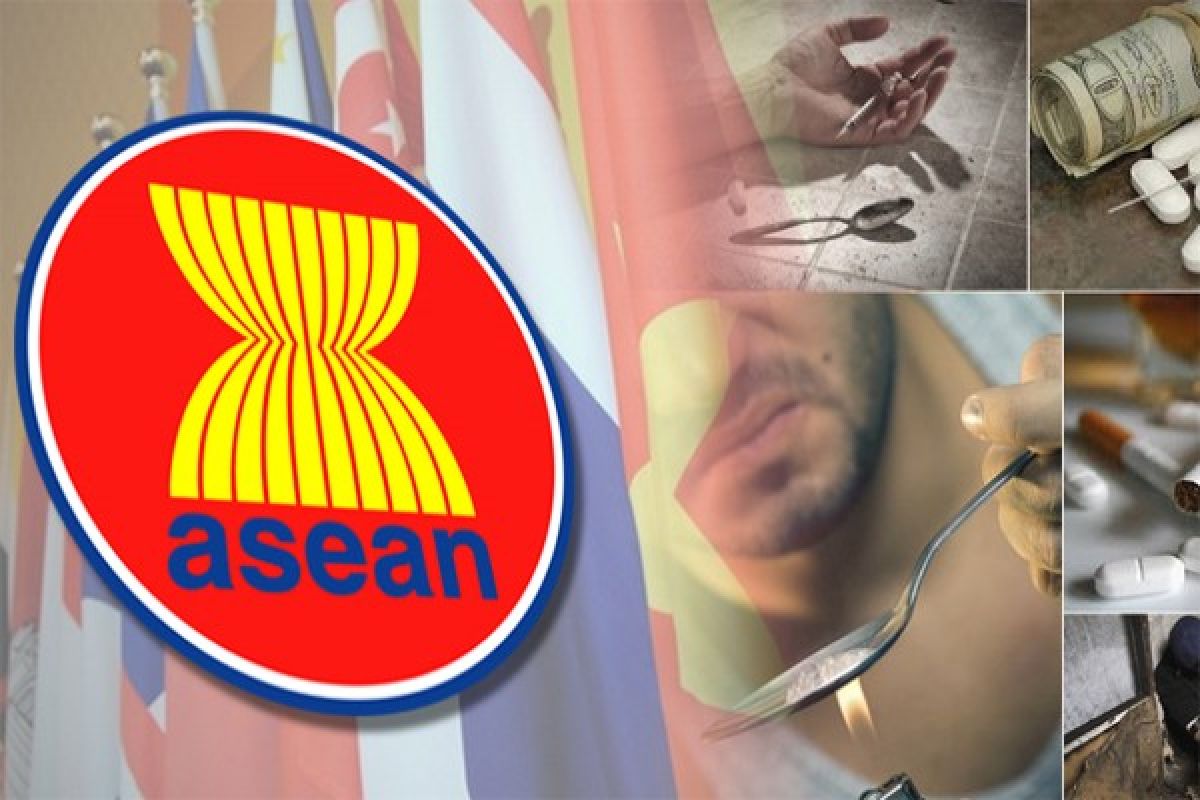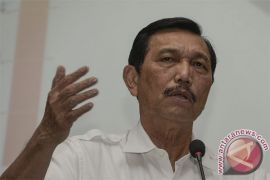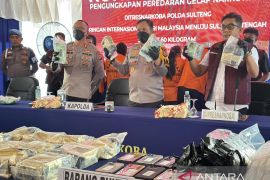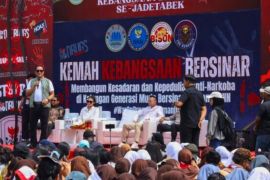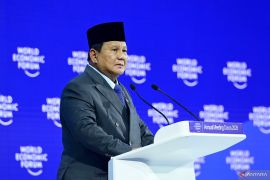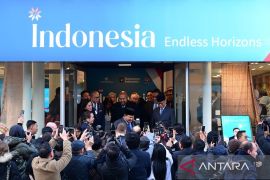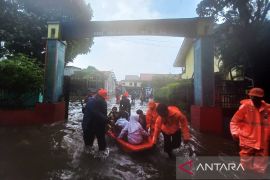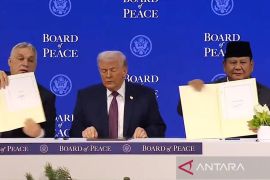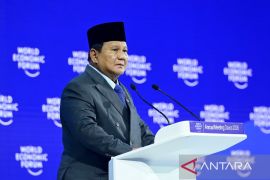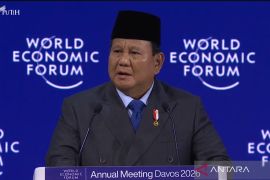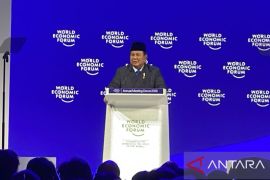Almost 40 percent of the cases of drug abuse in the ASEAN are reported in Indonesia ..."Jakarta (ANTARA News) - Indonesian migrant workers abroad, especially women, have become the easy targets of international drug mafias who trick them into smuggling drugs by luring them with financial benefits.
According to the National Narcotic Agency (BNN), drug syndicates are making attempts to exploit Indonesian migrant workers abroad to smuggle drugs into their country.
Migrant workers in dire need of money to return to Indonesia are usually the easy targets to illegally carry or collect drug consignments.
In fact, most of the arrested Indonesians were migrant workers who arrived in their country with drugs usually concealed in their luggage, clothing, or footwear.
Therefore, BNN Chief Anang Iskandar in a press statement on Monday warned the Indonesian migrant workers abroad against accepting drugs and other items entrusted to them by unfamiliar people.
"The Indonesian migrant workers abroad should focus on earning money for their families at home and should not get involved in drug syndicates," Iskandar noted in a press statement on Monday.
Acquainting Indonesian migrant workers in Hong Kong on the dangers of drugs on Monday, the BNN chief shed light on the various modi operandi used by drug syndicates for recruitment, and tips on what they should do to anticipate them.
Iskandar expressed hope that the migrant workers would increase their understanding and awareness of the dangers of drug circulation and not be easily tempted by lucrative wages offered by drug syndicates.
He remarked that of all the drug cases unveiled by the BNN, some of them were related to smuggling and had involved Indonesian migrant workers abroad, especially women.
Among the destination countries of migrant workers, Hong Kong is one of the countries often exploited by international drug syndicates to recruit Indonesian migrant workers as couriers for trafficking illicit materials.
According to the Indonesian Consulate Office, some 28 Indonesian migrant workers in Hong Kong were involved in drug-related legal cases this year, and 53 in 2014.
Therefore, Iskandar emphasized the importance of providing information to Indonesian migrant workers on the legal repercussions of being involved in illicit drug trafficking.
He also pointed out that Indonesia is currently in a state of drug emergency, with some 129 citizens currently facing death sentence abroad due to their involvement in drugs-related cases.
"Most of them are migrant workers who have been tricked into becoming couriers by international narcotic syndicates, and most of them are women," Iskandar remarked.
He also called on Indonesian migrant workers in Hong Kong and Macau to stay on alert to the possible dangers of narcotic crimes and not be easily deceived.
Meanwhile, Iskandar urged Indonesian drug users living abroad to immediately stop the use of narcotics, and if addicted, should immediately seek assistance from the Indonesian representative office to obtain recommendations for rehabilitation.
"We are cooperating with several countries bilaterally or multilaterally to prevent and eradicate narcotic abuse, especially to eliminate international narcotic networks that use Indonesian citizens as their couriers, or the country as a narcotic smuggling route," he emphasized.
He said the demand for narcotic drugs in Indonesia is still very high, making the country the main route for smuggling narcotics.
According to Iskandar, drug trafficking is carried out mainly through sea routes as Indonesia shares maritime borders with most of the other ASEAN member countries.
Therefore, the BNN will propose cooperation to strengthen maritime interdiction to eradicate drug trafficking networks in the four-day meeting of senior officials of the ASEAN on drugs in Singapore to be held on August 24-27, 2015.
He affirmed that Indonesia has become a major target of international drug syndicates in smuggling illicit drugs, notably amphetamine-type stimulants (ATS), ecstasy, and methamphetamine crystals.
"Almost 40 percent of the cases of drug abuse in the ASEAN are reported in Indonesia, with around 4.2 million drug users.
Therefore, he reiterated that stronger cooperation among the ASEAN countries is paramount to fighting the illicit trade.
Two years ago, the ASEAN members agreed in the 3rd Meeting of the ASEAN Airport Interdiction Task Force (AAITF) to establish cooperation networks in the region to facilitate interdiction, especially airport interdiction, in a bid to eradicate narcotics smuggling to achieve "Narcotics-Free ASEAN in 2015."
"At the same time, Indonesia is set to strengthen its Interdiction Task Force, which has shown good progress in unveiling and uprooting major cases of illegal drug trafficking," Iskandar noted.
Further, he added that the BNN will promote cooperation with the National Narcotics Control Commission of China (NNCC) to stop rampant illegal drug trafficking between the two countries.
"We have already established cooperation, and we are committed to promoting cooperation on a wider scope to stamp out the illicit trade," Iskandar said, adding that Indonesia has become an important route and a target market for international drug syndicates in this region.
Various types of illicit drugs are smuggled into Indonesia by organized syndicates due to their high demand in the country.
The BNN has identified the routes taken by international drug syndicates that also cover China, Taiwan, Hong Kong, and Western Africa, he pointed out.
The syndicates smuggled various types of illegal drugs into Indonesia including ATS, ecstasy, and methamphetamine crystals.
"One of the biggest producers is Guangzhou, which is located in the province of Guangdong, China," Anang stated.
Based on a report issued by the NNCC, almost 13.7 tons of methamphetamine crystals were produced in China in 2014, and 75 percent of which were produced in the province of Guangdong, and 6 percent in Sichuan.
According to the report, some of the produced narcotics were exported, including to Indonesia.
(T.O001/INE/KR-BSR/A014)
Reporter: Otniel Tamindael
Editor: Priyambodo RH
Copyright © ANTARA 2015
